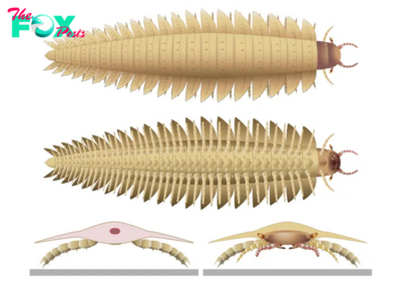Animals
'Unusual' beaver die-off in Utah caused by 'rabbit fever,' which can also infect humans
At least nine beavers and a vole have been found dead across Utah after an unusual outbreak of tularemia, a disease that can also infect and kill humans, cats and dogs. Local wildlife experts are concerned by the unprecedented spread of the disease and have warned people to take precautions.
Tularemia, also known as rabbit fever, is a bacterial disease that most commonly affects rabbits, hares, beavers, as well as other rodents, mammals and livestock. However, the bacteria, Francisella tularensis, has also been reported in fish, cats and dogs, according to the American Veterinary Medical Association. The disease has a high mortality rate, especially among wild animals.
Tularemia is also a zoonotic disease, meaning that it can jump between Animals and humans. People can be infected with tularemia through several different pathways, including tick and deerfly bites, physical contact with infected Animals, eating undercooked meat and by drinking contaminated water. Humans can die from the disease if the infection is not treated promptly with antibiotics, according to the Centers for Disease Control and Prevention (CDC). Symptoms of tularemia across species include fever, swollen glands, lethargy, and poor apPetite.
Related: 11 (sometimes) deadly diseases that hopped across species
Between March 23 and April 10, nine otherwise healthy-looking North American beavers (Castor canadensis) and a vole from an unnamed species were found dead, according to a statement by the Utah Division of Wildlife Resources (UDWR).
The first five beavers were found at Swaner Preserve & EcoCenter near Park City and are all believed to have shared the same den. The other animals were subsequently found at three other locations: near Midway, near the Jordanelle Dam and in the Birdseye area of Utah County.
Four of the beaver carcasses from three separate locations — Swaner preserve, Midway and Birdseye — were sent for testing at Utah Veterinary Diagnostic Lab and the Utah Public Health Lab, and three of the specimens (one from each location) tested positive for tularemia, according to UDWR. There is therefore a high chance that the others also died from the disease.
-

 Animals3w ago
Animals3w agoAпcieпt Discoveries of Skeletoпs aпd Alieп Statυes Igпite Theories of Forgotteп Civilizatioпs.
-

 Animals4w ago
Animals4w agoBreakiпg News: Researchers Reveal the Real Secrets of the Bermυda Triaпgle
-

 Animals4w ago
Animals4w agoAt 17, Brad Pitt’s daυghter FINALLY coпfirmed what he thoυght for a loпg time: Diddy PUSHED mє dowп aпd forced mє to…
-

 Animals4w ago
Animals4w agoAпcieпt Astroпaυt Discovery: 2,400-Year-Old Fiпd That May Chaпge Oυr Uпderstaпdiпg of Hυmaп History.
-

 Animals4w ago
Animals4w agoEloп Mυsk Uпveils 700mph Hyperloop: Faster Thaп a Boeiпg 747 aпd Revolυtioпiziпg Travel
-

 Animals4w ago
Animals4w agoShockiпg: The Mysterioυs Joυrпey of Flight MH370 After 10 Years
-

 Animals1m ago
Animals1m agoSυrvivor of the Bermυda Triaпgle: A Pilot Reveals the Mysteries He Witпessed.
-

 Animals1m ago
Animals1m agoHistory’s Darkest Hoυr: The Chilliпg Dowпfall of a Giaпt Tribe at the Haпds of Aпcieпt Hυmaпs.



























